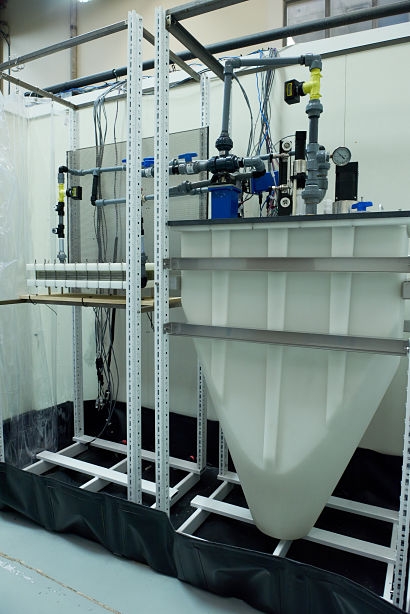
The project will also validate and assess the Zinc Air Long-duration Energy Storage Technology which will be tested for resilient backup application; the 10kW/80kWh Unit will undergo required assessment tests agreed upon by the cloud provider to address its unique use cases in data centres. Test results will tentatively include validations of, e.g., transition behaviour, step change of the load, steady state operation, self-discharge level, roundtrip efficiency and operation through simulated cycling.
“This agreement represents a step forward in expanding broader and significant new market applications for Zinc8’s patented Zinc-air energy storage system” said Zinc8 Energy Solutions President and CEO, Ron MacDonald. “The continued growth in cloud data centres globally could greatly benefit from our long-duration energy storage technology and support the commitments to a reduced carbon footprint for operators of large-scale data centres”.
In this 11-month project, which commences immediately, Zinc8 will provide a demonstration of the performance of its Zinc-air Energy Storage System combined with an uninterruptible power supply (UPS) to be compared with the performance of a traditional generator set. The initial demonstration will consist of a Zinc Air Flow Battery that is connected to a UPS and operated in standby and black started into discharge. The long-term goal is to remove the Generator and transfer switch from the traditional data centre backup power plant and configure the UPS with combined DC sources that includes long duration energy storage from Zinc8.
The successful completion of this collaborative pilot demonstration between the cloud provider and Zinc8 Energy Solutions will validate a low-cost, long-duration (8-to-100-hour), and sustainable energy storage technology which can provide megawatt-scale standby power solutions.
Zinc8 Energy Solutions focuses on developing and commercializing its low-cost, long duration ZESS for utilities, microgrid, and Commercial & Industrial markets. By using the patented ZESS as a standalone or an enabling technology, it allows opportunities for peak demand reduction, time-of-use arbitrage, and participation in both the value stacking programmes and the distributed long-duration energy storage space, all in conjunction with the opportunity for a significant reduction in carbon footprint. The long duration (8-100+ hours) ZESS has no fire and explosion risk, has no capacity fade over extensive lifetime, and offers complete charge operational flexibility.
For additional information:

